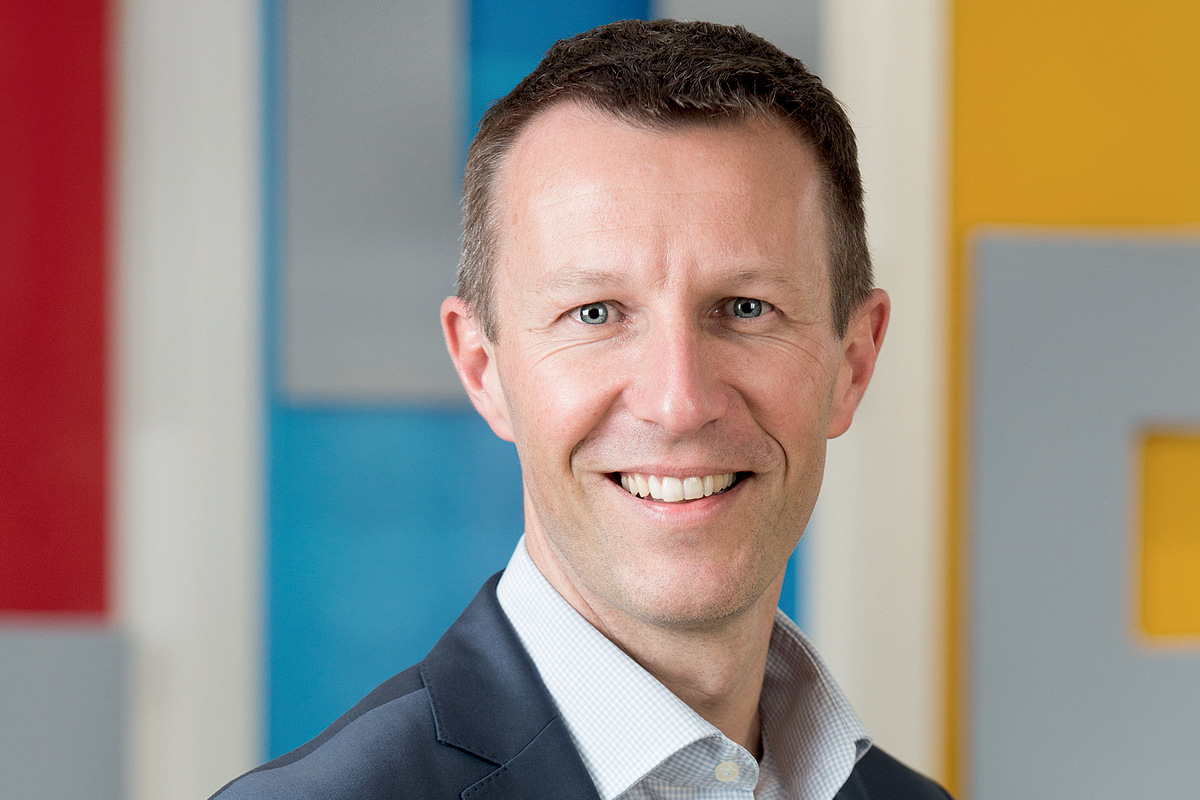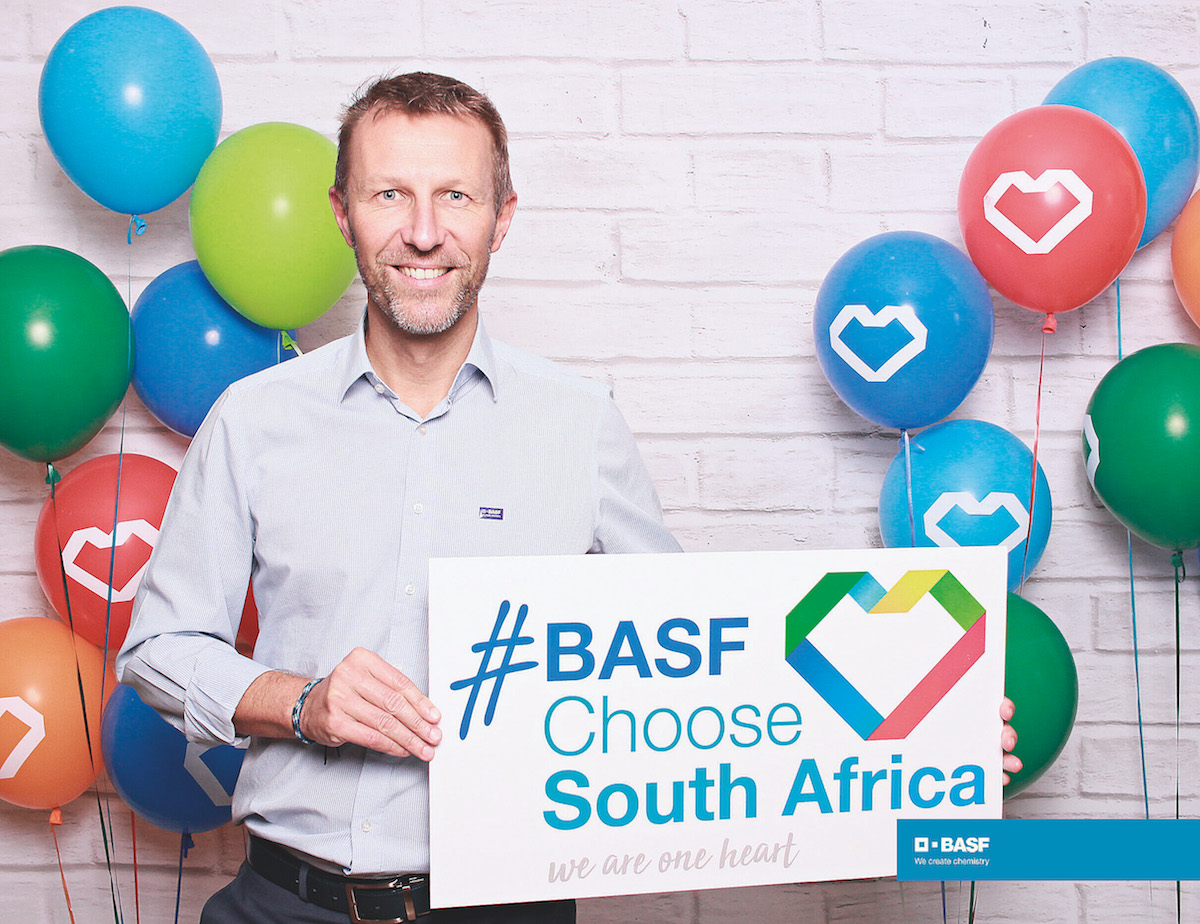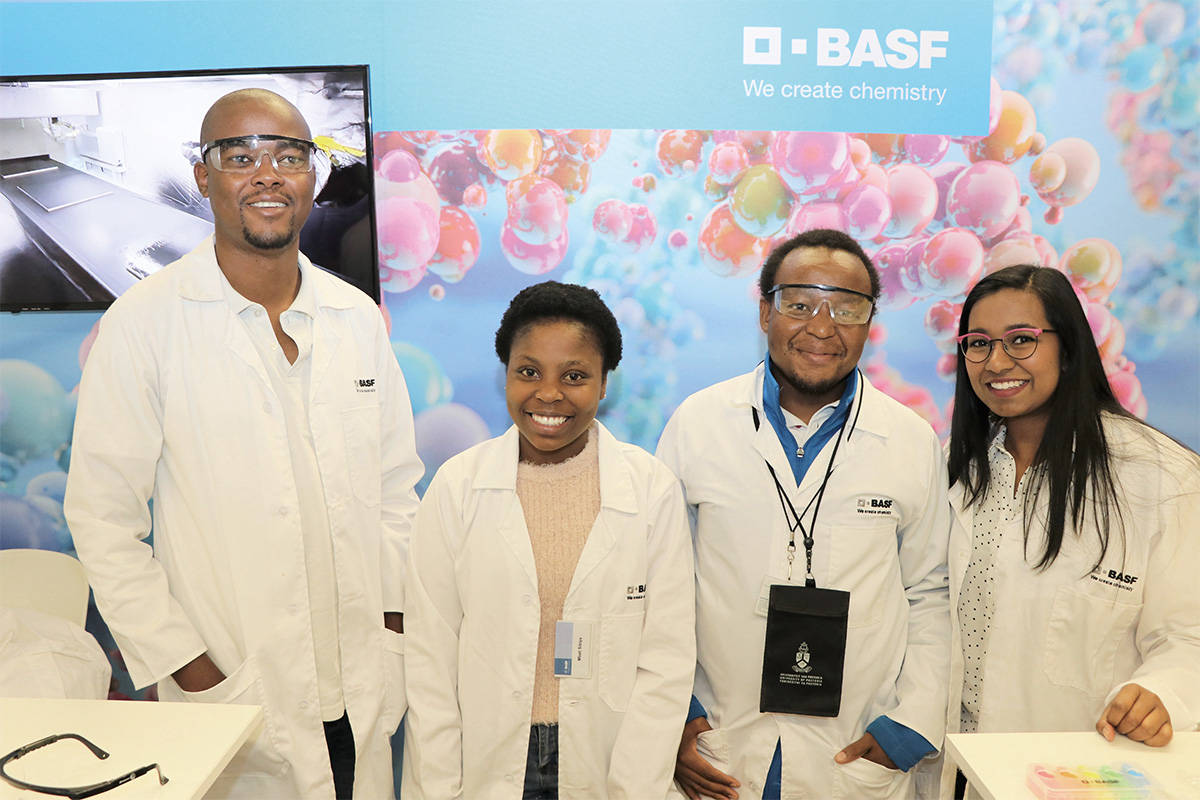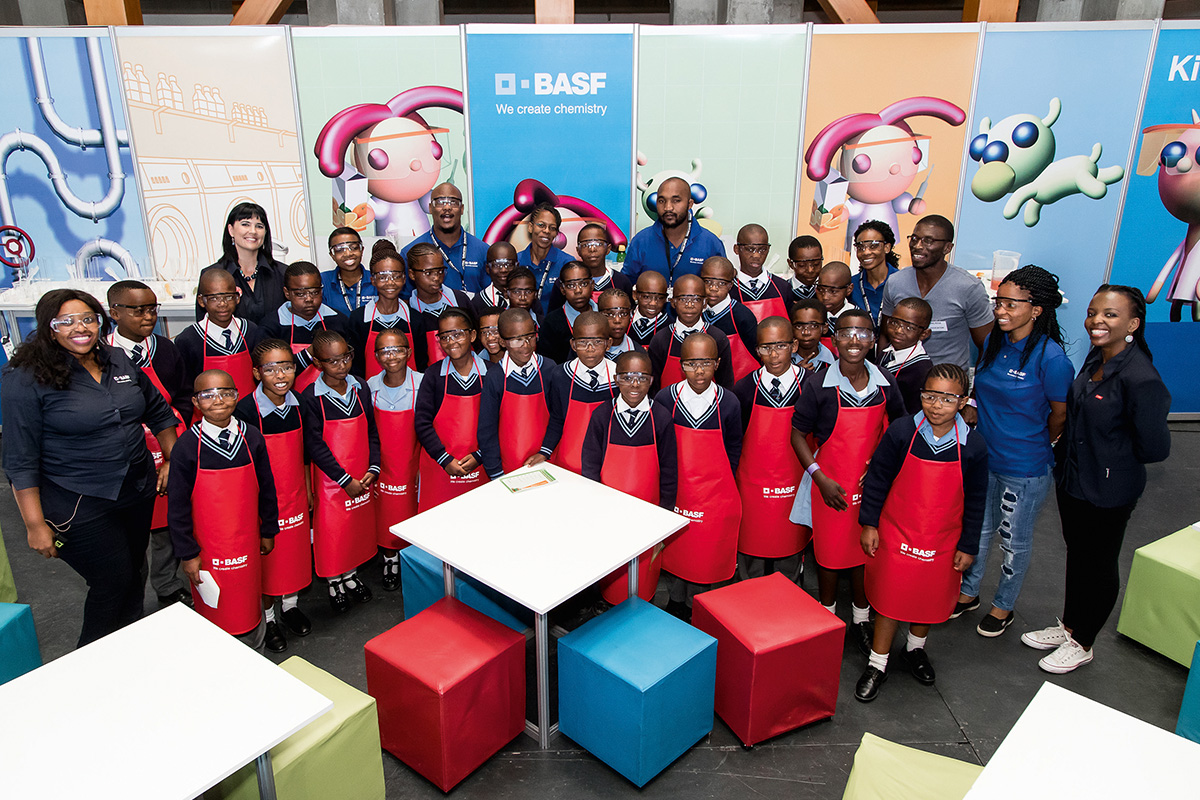Benoit Fricard can’t help but be amazed by science. After all, he is surrounded by it. As Managing Director of BASF South Africa, he leads a company committed to finding chemical solutions to ultimately contribute towards solving the country’s economic, environmental and social problems, and provide a sustainable future.
Undeniably, it’s a big job and a crucial one. However, it’s the people surrounding Benoit who fascinate him even more. The complexity of their varying cultures, unique experiences and aspirations triggered a curiosity that led him to an understanding of diversity at its best.
He passionately believes in the strength and richness that diversity brings. The CEO Magazine met with Benoit to learn more about his role, what it’s like to work in South Africa, and the difference BASF is making.
The CEO Magazine: What led you to the role of Managing Director of BASF South Africa?
Benoit: It’s a culmination of all the roles I have held before at BASF. My journey began in procurement in 2002 at BASF headquarters in Germany. After several years I was appointed Global Key Account Manager, responsible for three major accounts for the Performance Materials division, before being delegated to Slovakia as Head of Sales in Central and South Eastern Europe.

Thereafter, I was assigned to BASF Brazil as South America’s Director for Performance Materials, before joining BASF South Africa
as Managing Director in 2016, a role that has broadened my leadership skills to include managing different production sites, businesses and functional units.
What initiatives have you implemented?
I always seek to drive the ‘One BASF’ approach in everything I do: one company, one goal, one values-driven program, all aimed at reaching a common set of main targets and goals. In support of our BASF Grow Africa strategy, we have successfully introduced an internal values-based program called #BASFChooseSouthAfrica, which is based on four fundamental pillars: People and Culture; Process Excellence; Promote; and Performance.
BASF has also invested in the transformation of our South African operation. In support of our Broad-Based Black Economic Empowerment (B-BBEE) initiatives, we have established the BASF South Africa Trust, which provides financial support for tertiary education to young, black females studying in the field of science. Through this Trust they are empowered to become part South Africa’s next leading generation of scientists.
In 2017, BASF South Africa was awarded Level 5 B-BBEE status, with a B-BBEE Procurement Level of 80% and 30% black women ownership. This clearly shows our long-term commitment to the country and its economic transformation.
How do you believe people perceive BASF?
Globally, BASF is known for delivering quality products, scientific expertise and solutions. However, in South Africa, the brand awareness is not as strong, and many end users don’t know how our solutions touch their lives. Our aim is to develop new ways to communicate how our innovative solutions impact people every day.

Through our solutions, we contribute towards solving some of the world’s biggest challenges, like population growth. With the world’s population estimated to increase to about 9.6 billion people by 2050, we create chemistry that aims to alleviate food security by sustainably producing an adequate supply of quality food with the least amount of available farming land.
How is BASF meeting the challenge of an increased growth in Africa’s youth and their unemployment?
We have numerous programs that support our South African youth. Earlier this year, BASF Africa recruited 24 young, energetic graduates from across the continent, and 15 of them were placed in South Africa to form part of our inaugural BASF Africa Graduate Program. We believe this 24-month program will offer them a great stepping stone into employment.
Our BASF Coatings Services division has also enrolled 10 apprentices this year who will qualify as spray painters. They are placed at Glasurit body shops across the Gauteng province and mentored by BASF’s consultants and technicians.
Meanwhile, our BASF Kids’ Lab program is an ongoing education initiative held across the country. This interactive program is targeted at children between the ages of eight and 11 and gives them the opportunity to explore the magic of chemistry. It not only promotes science literacy, but also aims to captivate the inquisitive nature of the younger generation.
We also support the training of 20 special needs students who are completing various learnership programs at the LFP Group Oxford Training Campus in Gauteng. Investing in these students will increase their chances of obtaining employment. It is our responsibility as BASF to give young people opportunities that will ultimately make a difference to their lives and to society.
How does BASF South Africa contribute to achieving a sustainable world?
We have recently launched a sustainability road map where we measure ourselves against global sustainability requirements. Globally, BASF prides itself in creating eco-friendly products such as the biodegradable ecovio® plastic, which helps curb environmental harm. We are also promoting safe, lead-free paints and paint pigments, and ensuring we reduce phosphates in laundry detergents.

We need to be constantly curious and innovate to significantly contribute to a sustainable future. Hunger, poverty, energy and water are big challenges that require technical and business solutions across Africa.
“We need to be constantly curious and innovate to significantly contribute to a sustainable future.”
BASF has also been actively supporting the United Nations with its Sustainable Development Goals, which create the framework for sustainable business practices at economic, social and environmental levels.
Where do you see BASF South Africa heading in the next three to five years?
BASF adopts strategies focused on mega trends such as urbanisation, digitisation, robotics and convenience, trends which will drive innovative business developments that will cater to changing consumer behaviour.
Digitalisation is an important aspect of our business transformation. We are rolling out a digital project called LINK, which will improve delivery times, increase internal efficiencies in the supply chain and optimise the customer experience with 24/7 support and advice.
Digitalisation presents immense opportunities for us. Through using digital technologies and data, we can create additional value for our customers and increase the efficiency and effectiveness of our processes.
What interests you most about your work?
The most fascinating aspect is getting to know the people I work with, understanding the environment through their experiences, embracing their diversity and creating a vibrant culture made up of a positive balance between the BASF culture and the cultures of all the different, unique individuals within the organisation.

My previous role in South America helped to develop my respect for and a genuine interest in diversity. By being extremely curious and taking time to learn, I now have a deeper understanding of the diversity that exists in Southern Africa.
Who inspires you and why?
Osho, an inspirational Indian leader who is considered a ‘guru’ because of his emphasis on meditation, mindfulness, creativity, love and humour. He inspires me because of his philosophies on life. He truly believed we could all live in peace if we forgot our egos and worked more with our hearts and less with our heads.
What is your favourite quote?
This one from John Lennon: “When I was five years old, my mother always told me that happiness was the key to life. When I went to school, they asked me what I wanted to be when I grew up. I wrote down ‘happy’. They told me I didn’t understand the assignment, and I told them they didn’t understand life.” It inspires me because it reflects the importance of being happy in the now and not always aspiring for happiness in the future.
What have you learned leading the BASF South Africa team?
To never take anything for granted. When I started here I was tasked to focus on transformation. I had to first understand what it truly meant, especially in the context of South Africa, and then make changes from management control to ownership programs and supplier management. I had to rediscover who I was as person and how I can transform myself in this role to be better.


